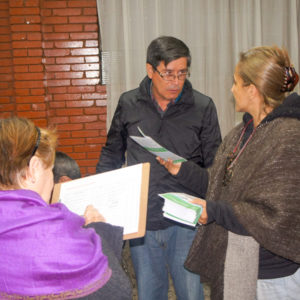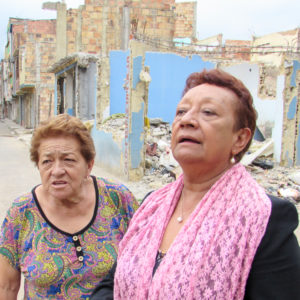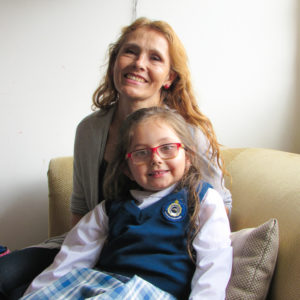In their own voice: why access to information matters to communities
Last week, on the International Day for the Universal Access to Information (28 Sept. 2018), 30 civil society organizations wrote to the private sector arm of the Inter-American Development Bank (IDB Invest), demanding that it provide safe, timely and accessible information to communities about the projects it finances. Comunidades Unidas – a community organization based in Bogotá – has direct experience with the innumerable obstacles facing communities who try to access that information under existing bank policies. Gloria Molina, the director of Comunidades Unidas, writes (translated from Spanish):
***
“Access to information is a fundamental right that permits the advance of societies, including by strengthening communities to protect themselves against harm caused by third parties in the name of development. As affirmed by the Sustainable Development Goals (among others), it is a social necessity that cannot be impeded, for it forms a critical component of the right to freedom of expression and it provides fundamental support for sustainable development and improvement of the quality of life of people.

Gloria Molina, Director of Comunidades Unidas,
distributes information in a community meeting
Within a process that Comunidades Unidas has initiated – to defend our communities’ rights against harm caused by the Expansion and Modernization of the El Dorado International Airport in Bogotá – the experience of access to information has been limited from the beginning. There was no timely access, which would have allowed the affected communities to be an active part in the mitigation and prevention of harm caused by that project. Neither in the initial evaluation of the airport expansion and modernization project, nor in the environmental and social impact studies carried out by the Inter-American Development Bank (IDB) – a key project investor – as well as by other parties directly and indirectly involved, was it recognized that the communities are a key stakeholder in these processes. These studies were not socialized and no notification was received about their results. And worse, the impacts of the project within these communities have been persistently underestimated; a mistake that the communities could have helped to correct, if they received this information in a timely manner.
Facing this situation, we sought help from the IDB’s accountability office – the Independent Consultation and Investigation Mechanism (MICI) – to validate and remedy our concerns about the project and its impacts. However, within the framework of this process, ostensibly designed to guarantee that affected communities have a voice, we continued to face information barriers. We were denied access to studies and analysis by reference to limitations in the IDB’s operational policy on access to information, which regulates MICI as well as the IDB and which considers those studies to be private and subject to confidentiality agreements between the Bank and its clients.

Community members living next to the airport have
struggled for years to have their voices heard
When MICI’s final investigation report was issued, more than 20% was redacted, despite the fact that the report was addressing environmental and social issues that were of total interest to the communities and had nothing to do with financial information, personnel, security or matters of such privacy and sensitivity that disclosure would endanger the client, investors or bank staff. These documents should have been disclosed in full to the communities without any restrictions.
It is not logical that access to information, in a case like this, should be subject to the discretion or permissions of the Bank’s clients on the basis that the environmental and / or social reports of the communities may violate their privacy and confidentiality. In this sense, we believe that new policies must take into account communities as an active participant in the processes that significantly affect their quality of life, and inform them accordingly.
It should be clear the difference between the information that is really relevant for the study of the project’s impacts and the evaluation of financial matters that are totally confidential, in order to be able to access reports, studies, analysis and other documents that show effects on the communities in environmental and social matters, so that they can be an active part in the mitigation and prevention of project impacts.

A child living in the zone worst affected
by the airport suffers hearing loss
In addition, the national and international organizations that work in these areas to contribute to the correction of these policies should be consulted without restriction; they should be invited to participate in reform processes with the support of their experiences as an input for the improvement of policies.
Without these changes, the victimization of the communities is permanent; they are not consulted, they are not summoned and they are systematically denied the possibility of sharing their experiences with other communities so that they can nourish themselves from past experiences and effectively contribute to the improvement of their conditions. On the contrary, the current policy is to ignore what they have to say in the face of these projects.”
***
For more information about Comunidades Unidas and their struggle for accountability, please see our case page. Para una versión en español, por favor vea el blog de Comunidades Unidas.

